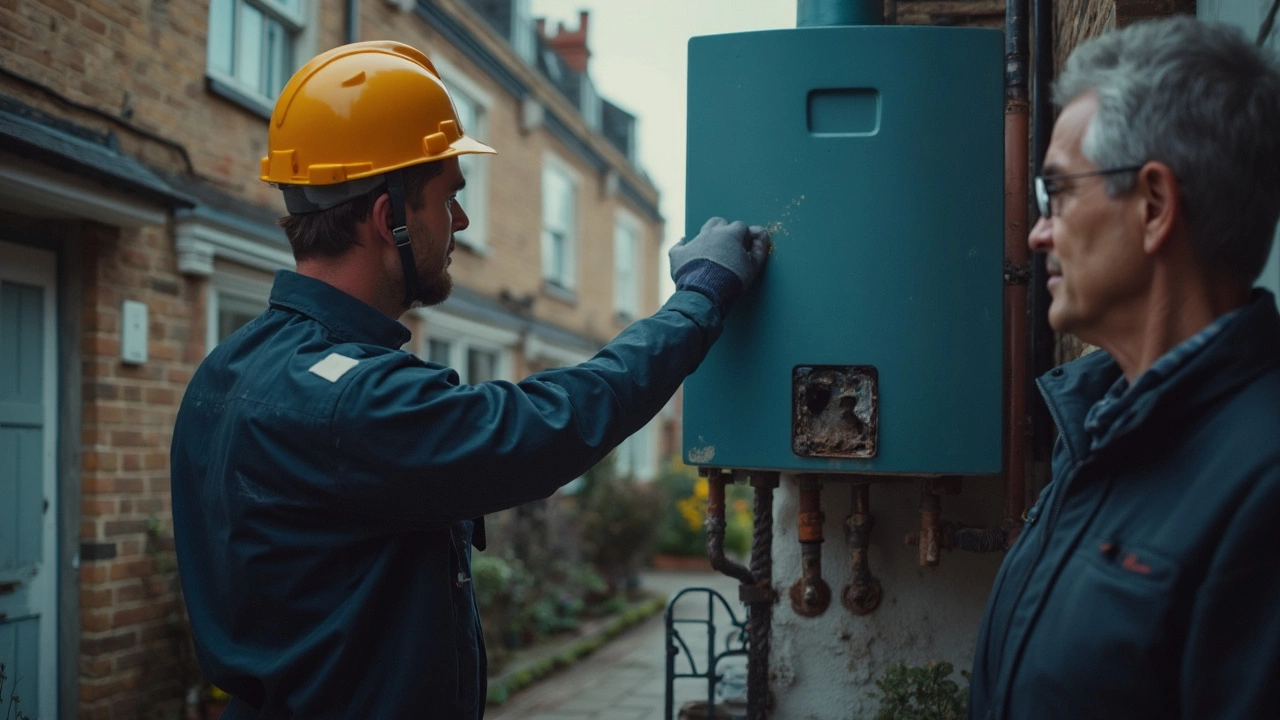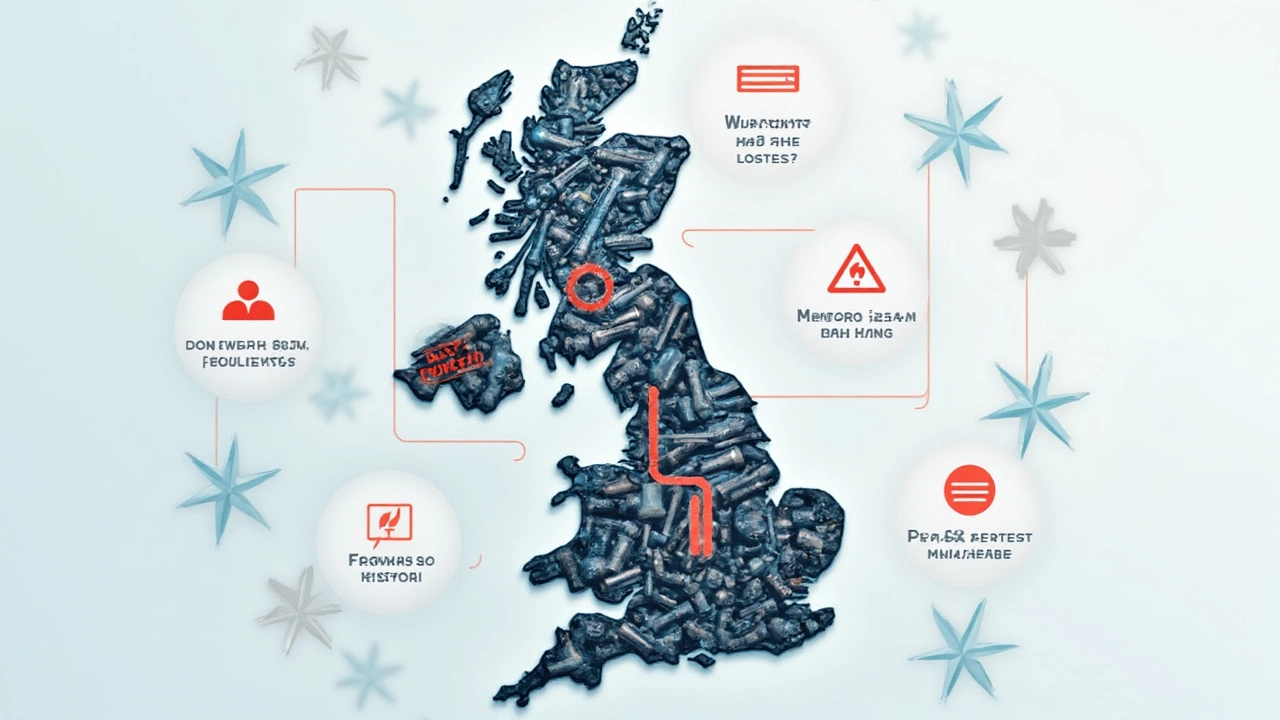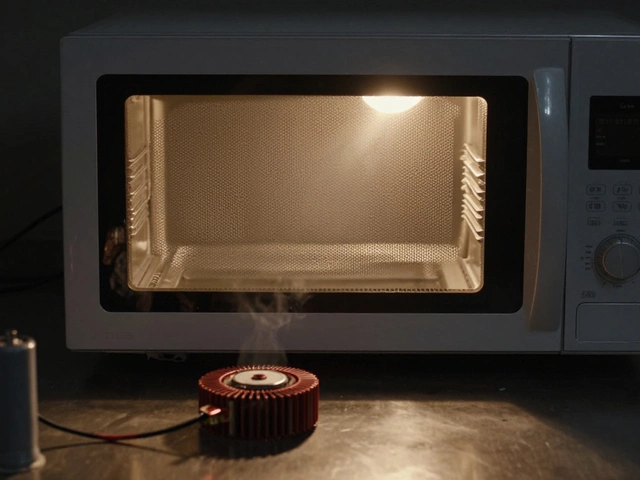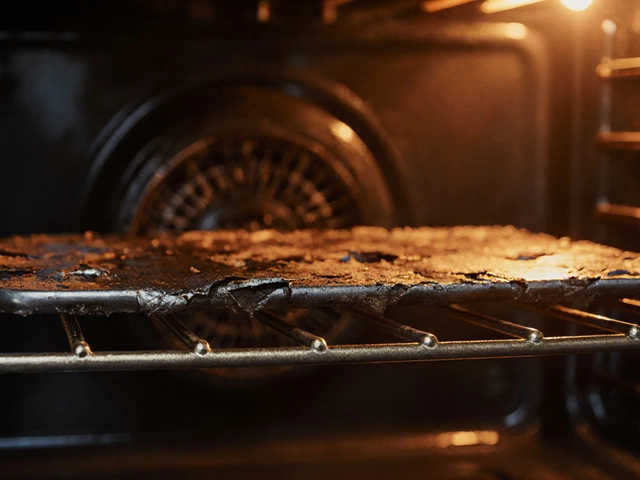Ever wondered what actually happens if you give your boiler service a miss? Boiler servicing probably feels like one of those annoying yearly chores, but ignoring it leads to way more trouble than you’d expect. If your boiler starts acting up or completely breaks down, it almost always comes back to regular servicing—or the lack of it.
Here’s what’s at stake: Your boiler’s parts start to gather dust and grime as they work. That makes your system run less efficiently, bumps up your energy bills, and leaves you shivering on the coldest days when it fails. And don’t think your manufacturer warranty will save you—most will instantly become useless if you skip that annual check.
Even scarier? Faulty boilers can leak carbon monoxide, which is odorless but deadly. Regular servicing is the only way you’ll spot early warning signs. Getting your boiler checked takes a fraction of the time you'd spend fixing major breakdowns or dealing with the mess after a leak or carbon monoxide scare. Missing that simple step just isn’t worth it.
- Immediate Effects of Skipping Service
- How Problems Escalate Over Time
- Risks to Safety and Health
- Costs Pile Up: Unexpected Bills
- How to Stay on Top of Boiler Maintenance
Immediate Effects of Skipping Service
When you skip a yearly boiler servicing appointment, problems can show up faster than you might think. The first thing most people notice is a drop in heating performance. Maybe your radiators aren’t as warm or your hot water runs out faster. This usually happens because dust and grime start to build up on key parts like the heat exchanger or burner, blocking smooth operation.
Then there’s the sound—gurgling, banging, or whistling noises from your boiler aren’t normal. That noise is a warning sign. It’s caused by issues like sludge clogging pipes or trapped air in the system. Simply put, your boiler’s working harder just to keep up, and you’re using more gas or electric for the same amount of heat.
Another big deal: efficiency can drop by up to 11% in just one missed service. No joke, that can mean an extra £60–£100 on your yearly energy bill, based on energy stats from UK home surveys. Here’s a simple table to show what skimping on service can cost you:
| Missed Services | Average Efficiency Loss (%) | Estimated Extra Cost/Year (£) |
|---|---|---|
| 1 | Up to 11% | £60–£100 |
| 2+ | 15% or more | £150+ |
Miss a service and certain parts will wear out—fast. Seals and valves start to fail, leaks can form, and little issues you can’t spot without a pro inspection start rolling into bigger, pricier headaches. The warranty gets another hit too; most manufacturers void boiler warranties the moment that annual stamp is missing.
Here's what usually crops up after missing one service:
- Cold spots on radiators
- Noisy system or frequent pressure drops
- Water leaks underneath or inside the boiler area
- Slow hot water delivery
Spotting these early, during regular servicing, can save a bundle and keep your boiler running when you need it. You really do feel the difference the next winter after skipping even just one check-up.
How Problems Escalate Over Time
Think skipping your boiler service just means a dusty old boiler in the cupboard? The real story’s a lot messier. Tiny issues like limescale buildup, a sticky valve, or a small leak can quietly grow into major headaches if nobody checks under the hood. In the first year, you might just notice your hot water takes longer to heat up. By the second or third year, you’ll be pouring money into higher energy bills, and your radiators might go cold even when the boiler’s supposed to be running strong.
According to the Heating and Hotwater Industry Council, “About 60% of boiler breakdowns are caused by poor maintenance or neglect.” That’s not a scare tactic, it’s a real wake-up call. Here’s what typically goes wrong over time without proper boiler servicing:
- Parts wear out and break down, causing random errors or total shutdowns.
- The heat exchanger can get clogged, making your system work twice as hard and pushing costs up.
- Hidden leaks might slowly damage your home’s walls or flooring over months.
- Safety devices like carbon monoxide sensors and pressure valves stop working as well, putting your health at risk.
"A boiler that hasn’t been serviced for two or more years is up to 30% more likely to experience a major fault, compared to one that’s checked annually." — Gas Safe Register
| Time Without Service | Common Issues | Effect |
|---|---|---|
| 1 Year | Slight efficiency drop, minor dirt buildup | Higher bills, slower heating |
| 2-3 Years | Component wear, clogged exchangers, leaks start | Frequent breakdowns, bigger repair bills |
| 5+ Years | Severe limescale, critical faults, poor safety | System failure, safety risk, possible replacement |
Don’t get stuck replacing your whole system just because of avoidable neglect. A yearly check stops these slow burns from turning into wallet-busting disasters.

Risks to Safety and Health
Most people don’t realize how easy it is for a neglected boiler to turn into a safety hazard. The number one issue? Carbon monoxide leaks. This gas is colorless and has no smell, so you can’t tell it’s present until it’s too late. The NHS reports that around 60 people die every year in England and Wales from accidental carbon monoxide poisoning, and faulty boilers are a leading culprit.
If your boiler isn’t serviced, cracks, broken seals, or loose flues can brew trouble. Gas leaks don’t just risk poisoning; in rare cases, they can lead to explosions if gas builds up in a confined space. A boiler working overtime with blocked vents or clogged filters creates a real fire risk too.
Even minor, slow leaks put the health of everyone in your household at risk. Headaches, nausea, and dizziness are some of the first signs. You get so used to feeling lousy that you might not link it to your heating system at all. That’s what makes yearly boiler servicing something you can’t just ignore, especially if you’ve got kids or elderly family around.
Spotting warning signs early is key, but a lot can slip past you if you’re not trained to look. That’s why a certified engineer checks things like:
- Proper sealing of gas flues
- Ventilation and air flow around the boiler
- Signs of overheating or burning
- Condition of safety and shut-off controls
Here’s how some real risks stack up, based on recent studies and reported incidents:
| Risk | Potential Outcome | Reported Frequency (UK, 2024) |
|---|---|---|
| Carbon monoxide leaks | Nausea, poisoning, death | ~200 cases/year |
| Gas explosions | Serious injury, property damage | 15-25 incidents/year |
| Fire hazards | Home fires, smoke damage | Approx. 80 fires/year |
The easy fix? Schedule that annual service. It’s simple, affordable compared to the risks, and gives you peace of mind that your boiler isn’t quietly making your home unsafe.
Costs Pile Up: Unexpected Bills
Think skipping your boiler service is saving you cash? It's usually the opposite. Most folks don’t see the hidden costs sneaking up until a freezing morning when the heating’s dead, and a repair bill hits like a brick. Annual boiler servicing is way cheaper than even a single major fix.
Let’s break it down: A typical yearly service in the UK runs about £80–£120. Compare that to common repairs, where a broken heat exchanger or a failed pump often costs anywhere from £250–£500, and a full boiler replacement can set you back £2,000 or more. Regular checks catch these problems early, so you’re looking at a minor cleaning fee rather than a new appliance.
The numbers speak for themselves:
| Expense | Estimated Cost (£) |
|---|---|
| Annual Service | 80–120 |
| Standard Repair (e.g. valve, thermostat) | 100–200 |
| Major Repair (e.g. heat exchanger, pump) | 250–500 |
| Boiler Replacement | 2,000+ |
| Emergency Call-Out | 150–250 (extra) |
Bills sneak higher, too, when your boiler has to work harder. The Energy Saving Trust reckons an unserviced boiler can waste up to £200 a year just in lost efficiency, enough for a nice weekend away. And if you rent out a property, neglecting boiler care can also get you fined under landlord rules.
Worse, most manufacturers ditch your warranty the minute you skip annual servicing. So, if something serious goes wrong, you’re paying every penny yourself.
Bottom line: a missed service may not hurt today, but ignore it long enough and your wallet is going to notice—hard.

How to Stay on Top of Boiler Maintenance
Keeping your boiler running smoothly is all about a simple routine, and you don’t need to be a pro to manage the basics. Your top priority: book your annual boiler servicing with a certified Gas Safe engineer. This is non-negotiable — not only is it a safety must, but it also keeps your warranty valid. Mark your calendar for the same month every year so it doesn’t slip your mind.
Don’t just wait for the engineer. You can help things along by giving your boiler a once-over every month or so. Here’s what you should check:
- Look for leaks, including any damp patches under or around the boiler.
- Make sure the pressure stays in the safe range — usually between 1 and 1.5 bar.
- Watch and listen for weird noises or error lights.
- Bleed your radiators if you notice cold spots — this stops your boiler from working overtime.
- Be sure the ventilation around your boiler is clear of clutter.
One smart tip: during the summer, switch on your heating for 10-15 minutes once a month. This stops parts from seizing up and keeps everything moving as it should. In the winter, keep an eye on outdoor pipes to make sure they don’t freeze. If you spot frost, warm them up gently with a towel soaked in hot water.
If your boiler manual recommends extra tasks, do them. Don’t ignore weird smells, loud banging, or sudden temperature drops. Call in a pro early — small issues get expensive fast if you leave them to grow.
And if you’re renting, ask your landlord for the last service record. Legally, landlords have to sort this out every year, so speak up if you haven’t seen proof.





